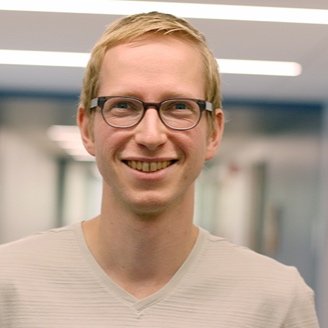Friday, May 13
10:00 AM -
3:15 PM EDT
Room 5209 and via Zoom
Abstracts, slides, and links to recorded talks below
9:30 - 10:00
Coffee and pastries in Room 5209
10:00 - 10:45
Operadic composition of thermodynamical systems
Owen Lynch
Utrecht University
—
11:00 - 11:45
Polynomial functors and Shannon entropy
David Spivak
MIT and the Topos Institute
—
12:00 - 1:30
Lunch in Room 5209
1:30 - 2:15
Higher entropy
Tom Mainiero
Rutgers New High Energy Theory Center
—
2:30 - 3:15
On characterizing classical and quantum entropy
Arthur Parzygnat
Institut des Hautes Études Scientifiques
—
Wine and cheese reception to follow, Room 5209
-
Owen Lynch, Utrecht University
view slides
watch lectureThe maximum entropy principle is a fascinating and productive lens with which to view both thermodynamics and statistical mechanics. In this talk, we present a categorification of the maximum entropy principle, using convex spaces and operads. Along the way, we will discuss a variety of examples of the maximum entropy principle and show how each application can be captured using our framework. This approach shines a new light on old constructions. For instance, we will show how we can derive the canonical ensemble by attaching a probalistic system to a heat bath. Finally, our approach to this categorification has applications beyond the maximum entropy principle, and we will give an hint of how to adapt this categorification to the formalization of the composition of other systems.
-
David Spivak, MIT and the Topos Institute
view slides
watch lectureThe category Poly of polynomial functors in one variable is extremely rich, brimming with categorical gadgets (e.g. eight monoidal products, two closures, limits, colimits, etc.) and applications including dynamical systems, databases, open games, and cellular automata. In this talk I'll show that objects in Poly can be understood as empirical distributions. In part using the standard derivative of polynomials, we obtain a functor to SetxSet^{op} which encodes an invariant of a distribution as a pair of sets. This invariant is well-behaved in the sense that it is a distributive monoidal functor: it acts on both distributions and maps between them, and it preserves both the sum and the tensor product of distributions. The Shannon entropy of the original distribution is then calculated directly from the invariant, i.e. only in terms of the cardinalities of these two sets. Given the many applications of polynomial functors and of Shannon entropy, having this link between them has potential to create useful synergies, e.g. to notions of entropic causality or entropic learning in dynamical systems.
-
Tom Mainiero, Rutgers New High Energy Theory Center
view notes
watch lectureIs the frowzy state of your desk no longer as thrilling as it once was? Are numerical measures of information no longer able to satisfy your needs? There is a cure! In this talk we'll learn about: the secret topological lives of multipartite measures and quantum states; how a homological probe of this geometry reveals correlated random variables; the sly decategorified involvement of Shannon, Tsallis, Réyni, and von Neumann in this larger geometric conspiracy; and the story of how Gelfand, Neumark, and Segal's construction of von Neumann algebra representations can help us uncover this informatic ruse. So come to this talk, spice up your entropic life, and bring new meaning to your relationship with disarray.
-
Arthur Parzygnat, Institut des Hautes Études Scientifiques
view slides
watch lectureIn 2011, Baez, Fritz, and Leinster proved that the Shannon entropy can be characterized as a functor by a few simple postulates. In 2014, Baez and Fritz extended this theorem to provide a Bayesian characterization of the classical relative entropy, also known as the Kullback-Leibler divergence. In 2017, Gagné and Panangaden extended the latter result to include standard Borel spaces. In 2020, I generalized the first result on Shannon entropy so that it includes the von Neumann (quantum) entropy. In 2021, I provided partial results indicating that the Umegaki relative entropy may also have a Bayesian characterization. My results in the quantum setting are special applications of the recent theory of quantum Bayesian inference, which is a non-commutative extension of classical Bayesian statistics based on category theory. In this talk, I will give an overview of these developments and their possible applications in quantum information theory.
This symposium is accompanied by a tutorial for graduate students and postdocs on
Wednesday, May 11 @ 1:00pm - 4:30pm EDT. Register here for the tutorial.
—
Organized by John Terilla (Queens College and CUNY Graduate Center). Sponsored by the Initiative for the Theoretical Sciences and the CUNY doctoral program in Mathematics with support from the Gordon and Betty Moore Foundation.





